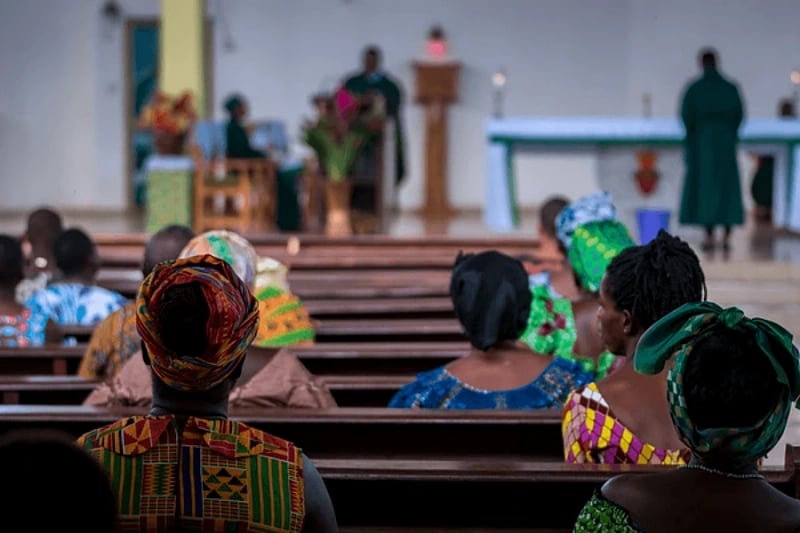Taxing such entities—not on tithes or offerings, but on business-related income and assets—can enhance public revenue while promoting transparency and accountability in the sector.
As debates around economic fairness intensify, the issue of taxing religious institutions in Ghana has resurfaced—especially when churches accumulate significant wealth through business ventures, real estate, and other profit-generating assets.
Let’s not beat around the pulpit — the conversation about taxing churches in Ghana is long overdue. It’s time we faced the holy elephant in the room: when churches begin acquiring massive assets, building real estate empires, owning fleets of vehicles, and running businesses, they should be paying their fair share in taxes. Faith doesn’t exempt you from fiscal responsibility.
According to the Ghana Revenue Authority (GRA), religious organizations are exempt from paying taxes only when their income is used exclusively for religious or charitable purposes. This is clearly stated under Section 10 (1)(d) of the Income Tax Act, 2015 (Act 896). But let’s be honest — how many churches are sticking to that rule?
Some churches today operate like multinational corporations — from selling anointing oils and branded merchandise to managing schools and private businesses under their names. In 2020 alone, Ghana was reported to have over 10,000 registered churches, many of which own prime properties in Accra and other urban centers. Yet, most of them don’t contribute a pesewa to national revenue.
You’ll hear the argument: “Churches give back to society.” Yes, some do — through social programs and charity. But should that exempt them from taxation on their for-profit activities and asset accumulation? If a religious institution is buying commercial properties or making investments that yield profits, shouldn’t they be taxed like every business?
Even prominent voices agree. In 2018, the then Commissioner-General of GRA, Emmanuel Kofi Nti, openly hinted that the authority was considering taxing churches that engage in non-charitable business activities. Sadly, the noise died down — drowned out by a mix of political hesitation and religious backlash.
But guess what? Ghana is currently struggling with a revenue shortfall. The 2024 budget deficit was estimated at over GH₵61 billion, and we’re under pressure from the IMF to widen our tax net. So, let’s ask the obvious: why are wealthy churches not part of the solution?
What Other Countries Are Doing: Time for Ghana to Learn
🇿🇦 South Africa
South Africa’s tax laws under the Income Tax Act (Section 10(1)(cN)) allow for tax exemption for Public Benefit Organizations (PBOs), including churches — but only for religious activities. Once a church starts operating a side business or earns rental income, it must pay tax on those earnings. The South African Revenue Service (SARS) monitors this strictly. In fact, in 2017, SARS shut down a religious group that misrepresented commercial income as offerings.
🇰🇪 Kenya
Kenya’s Income Tax Act (CAP 470) exempts religious institutions from tax only if the funds are used solely for religious or charitable causes. However, in 2020, the Kenya Revenue Authority (KRA) launched a major audit on religious organizations after reports surfaced about churches amassing wealth through “miracle seed” offerings and property investments. Churches engaging in profit-making ventures now face Value Added tax (VAT) and corporate income tax.
🇳🇬 Nigeria
Nigeria allows churches to register as NGOs and exempts them from taxation, but the Federal Inland Revenue Service (FIRS) announced in 2019 that churches must pay tax on business arms, such as schools, hospitals, publishing houses, and TV stations. In a crackdown, the FIRS began investigating mega-churches with investments in banks and media. They argued: “We’re not taxing the gospel. We’re taxing the goods.”
🇩🇪 Germany
Germany has one of the most unique models — it imposes a “church tax” (Kirchensteuer), deducted automatically from incomes of registered church members (about 8–9% of their income tax). This tax directly funds church operations, and citizens must formally deregister to avoid it. It’s transparent, regulated, and keeps churches accountable.
🇮🇹 Italy
Italy revised its laws under the “Eight per Thousand Law (Otto per Mille),” allowing taxpayers to allocate 0.8% of their income tax to a religious institution or the state. Religious groups receiving funds must file annual reports on how the money is spent. Failure to comply can result in the withdrawal of public support.
So, What’s Ghana Waiting For?
We don’t need to tax faith. We need to tax financial empires disguised as faith centers. Ghana must follow the global trend by amending or strictly enforcing our existing tax laws.
Here’s what we can do:
Amend the GRA Act to define commercial thresholds for religious institutions. Establish a Religious Financial Audit Board (RFAB) to review churches with significant asset bases. Enforce tax filings for churches with subsidiaries (like schools or businesses). Launch a national registry of religious organizations — linking them to their financial declarations.
Even tax expert Dr. Alex Ampaabeng put it bluntly:
“Religious organizations must be brought under the tax bracket if they engage in commercial activities. Exemptions must not become loopholes.”
The truth is simple. We need every cedi we can get — to fix roads, pay teachers, equip hospitals. And when a religious body becomes a wealthy institution with non-spiritual revenue streams, it must be taxed accordingly.
So here’s the bottom line:
If a church builds assets, makes profits, or runs businesses, it must pay taxes. Period!
Let’s update our tax enforcement strategy, ensure transparency, and put all organizations — spiritual or not — on a level playing field.
We’re not saying tax faith. We’re saying tax the fortune that faith sometimes builds.
This opinion piece was written by Samuel Kwame Boadu for Accra Street Journal. The views expressed are those of the writer and not necessarily those of this platform


